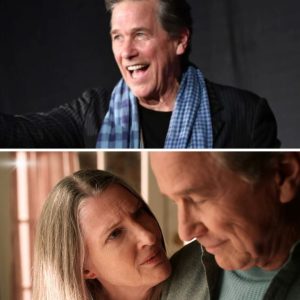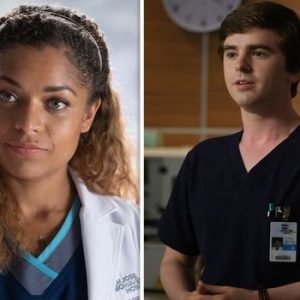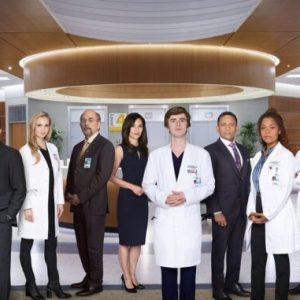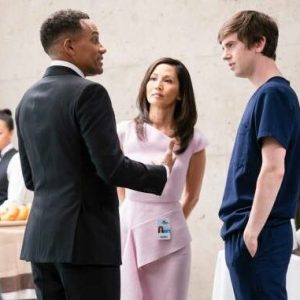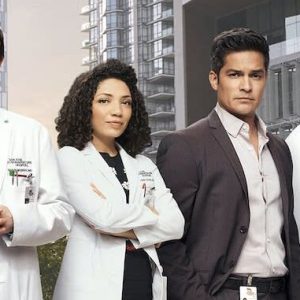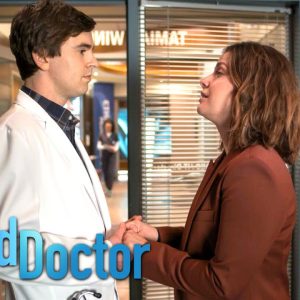In the high-paced world of The Good Doctor, where surgeries race against time and young love often steals the spotlight, there’s a quieter, more mature love story unfolding in the background—one that deserves just as much attention. Dr. Aaron Glassman and Debbie Wexler’s relationship is not just a subplot. It’s a testament to the idea that love doesn’t belong solely to the young. It belongs to anyone brave enough to open their heart—at any age.
Dr. Glassman, Shaun Murphy’s longtime mentor and father figure, is a man who’s been through life’s hardest battles. A seasoned physician, Glassman has faced brain cancer, watched his marriage fall apart, and experienced the complexities of raising and protecting someone like Shaun. His life has been defined by control—controlling his environment, his emotions, and sometimes, the people he cares about. So when Debbie enters his life, she doesn’t just challenge his routine—she challenges his idea of love itself.
Their relationship begins not with passion or sweeping romance, but with conversation, companionship, and connection. Debbie isn’t awed by Glassman’s reputation or status. She sees him—flaws, baggage, and all—and that’s what makes their story so rich. There’s something deeply moving about watching two people, both with histories and heartbreaks, slowly find their way to each other.
One of the most powerful tensions in their relationship comes from Glassman’s struggle to relinquish control. He’s used to being in charge, especially in his relationship with Shaun. But with Debbie, that control is challenged. She calls him out when he’s too overbearing. She sets boundaries. She doesn’t let him coast emotionally, which forces him to confront his own fears about intimacy and aging. Their marriage—yes, they do marry—isn’t painted as a fairy tale. There are arguments. Moments of silence. Even temporary separation. But underneath it all is a mutual respect, and a deep desire to make it work. And that’s what stands out most: their choice to love each other, even when it’s difficult.

In one of the show’s most emotionally revealing arcs, we see Glassman struggle with depression and the feeling that he’s becoming obsolete. Debbie, in her own way, becomes both a mirror and a balm. She sees the parts of him he tries to hide—the grief, the fear, the loneliness. And while she can’t fix him (nor does she try to), her presence reminds him that being loved doesn’t require perfection. It requires honesty. At one point, their relationship is put to the test in a very public way. Debbie moves out. Glassman is left wondering whether they rushed into marriage, whether love at this age is even worth the effort. It’s a painful realization—but also an opportunity for growth. Love, the show suggests, isn’t about avoiding discomfort. It’s about facing it together, even if that means stepping back to reassess.
And that’s what makes their reconciliation all the more satisfying. When they come back together, it’s not with fireworks—it’s with forgiveness. With understanding. With the knowledge that love isn’t always easy, but it’s worth it. Glassman and Debbie’s love story expands the emotional vocabulary of The Good Doctor. It tells viewers—young and old—that love doesn’t expire. It may look different than it did in youth. It may be slower, quieter, even more complicated. But it’s still real. Still powerful. Still transformative.
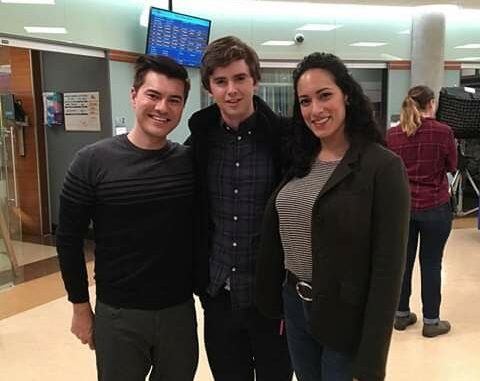
Their story also beautifully complements Shaun’s journey. As Shaun learns what it means to be in a relationship—how to communicate, how to compromise, how to grieve and grow—Glassman is navigating the same terrain from a different angle. He’s not just Shaun’s mentor in medicine; he becomes a mirror of what love can look like across the lifespan. In many ways, Glassman and Debbie provide the emotional balance to the more youthful love stories in the series. While Shaun and Lea struggle with firsts—first love, first loss, first marriage—Glassman and Debbie navigate seconds. Second chances. Second thoughts. Second beginnings. Their love is a reminder that the heart doesn’t retire. It just learns to love differently.
